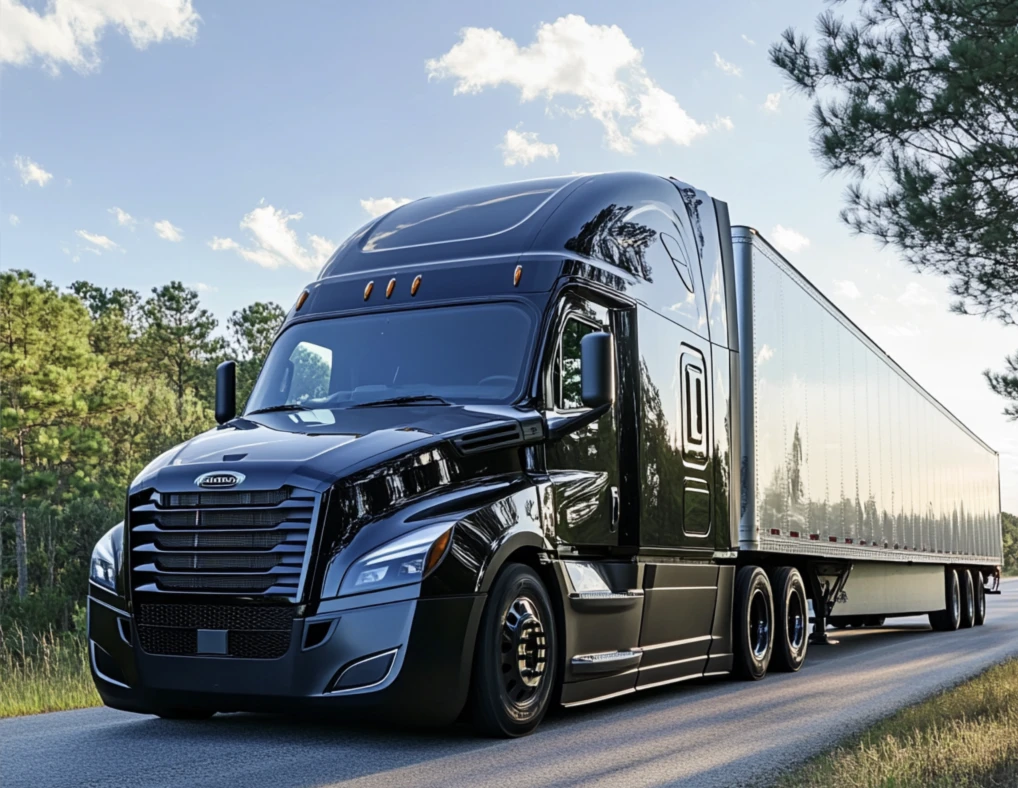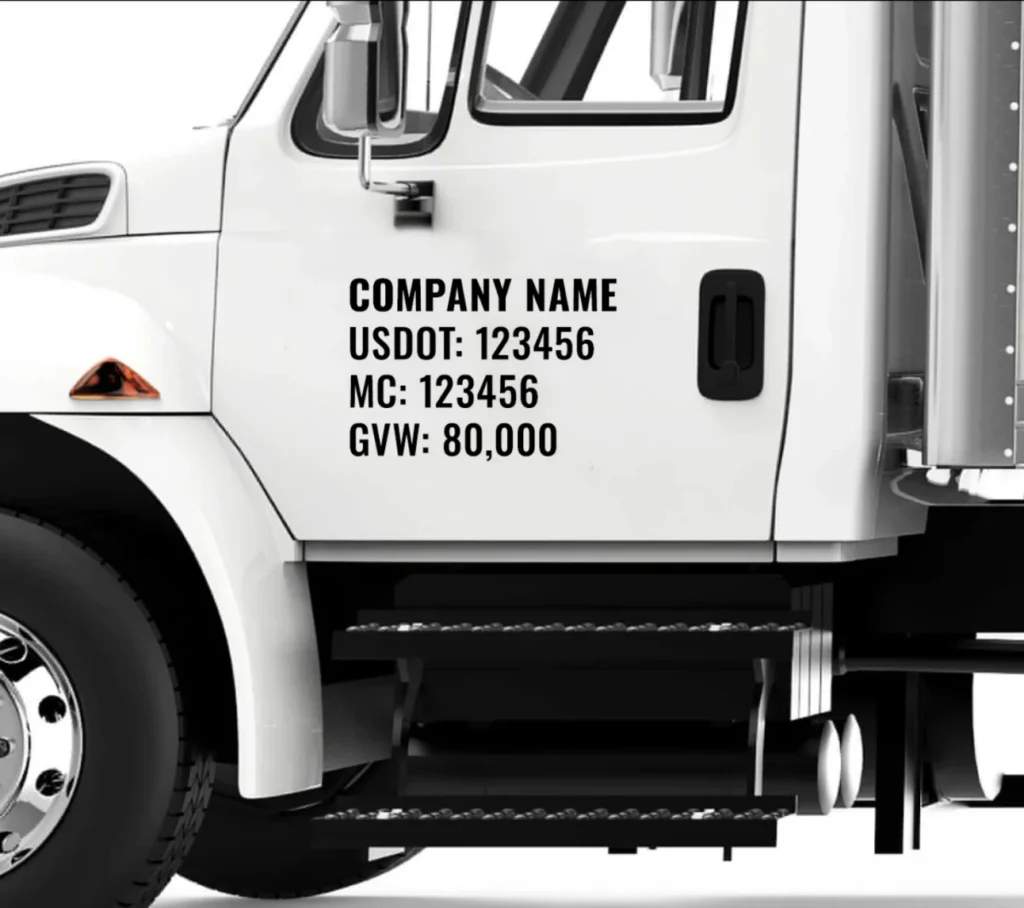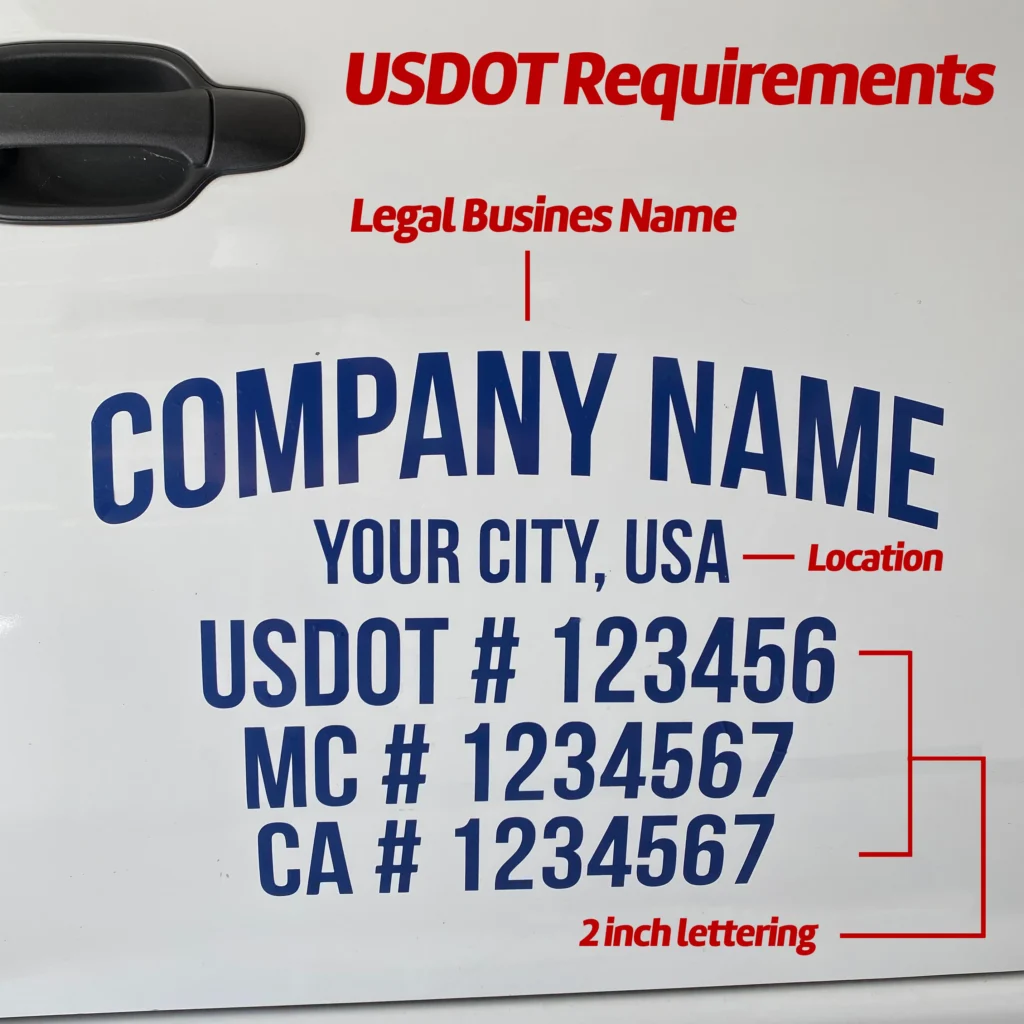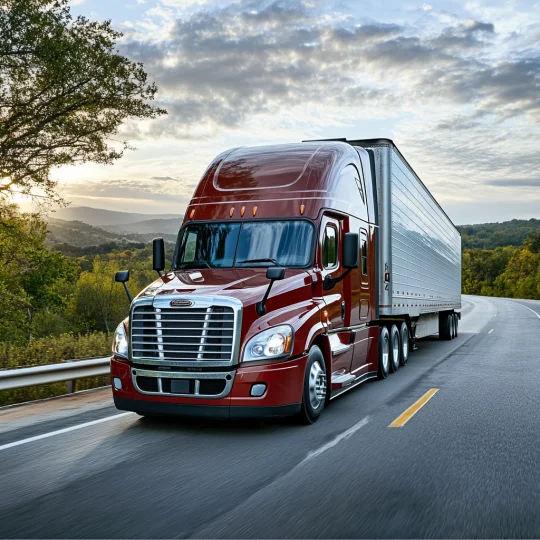Are you part of the bustling commercial vehicle world in the United States?
If your business moves cargo or people, please know about DOT numbers.
This guide put together by EasyWayPro, gives you the key info to handle this important part of following rules and staying safe in your work.

What's a DOT Number?
Let's Break It Down
A DOT number isn't just a string of digits.
Your company's unique ID is in the Federal Motor Carrier Safety Administration (FMCSA) database. Picture it as your fleet's digital fingerprint tracked to ensure you follow the tough safety rules in the transportation world. This code does more than just identify you. It shows you're serious about following good transportation practices.
The Many Jobs of DOT Numbers:
More Than Just IDs
DOT numbers are key to keeping the whole transportation system safe and honest. They have many uses such as:
- Safety Assurance:
The FMCSA uses DOT numbers to keep an eye on how safe your fleet is. They look at inspections, accidents, and whether you follow the rules. This helps ensure you're meeting the tough safety rules that protect drivers, passengers, and everyone else on the road. - Accident Investigation:
If a crash happens, your DOT number becomes a key tool for investigators. It lets them figure out which vehicles were in the accident. They can also get a lot of important safety info. This speeds up the investigation and helps them understand what happened. - Data-Driven Decision-Making:
DOT numbers are the foundation for data analysis at the FMCSA. The agency studies industry-wide patterns, spots areas that need improvement, and tackles potential risks head-on. This helps them make smart choices to boost safety rules and procedures, which ends up helping everyone in the transportation world.
Getting to Know the
USDOT Number:
Small but Important Difference
A USDOT number is a DOT number with "US" in front of it showing it's from America.
Both terms mean the same thing in the trucking world, and people use them without getting mixed up. The "USDOT" part just makes it clear where the number comes from.
Breaking Down the DOT Number: What's Inside?
A DOT number has eight digits, and it can appear on its own or with "USDOT" before it. This simple-looking code contains a lot of info such as:
- Operational Status: This shows if the carrier is running, on a break, or has lost its license for breaking the rules.
- Safety Rating: This score looks at checks, reviews, and safety info to give a full picture of how safe the carrier is. It helps partners and customers make good choices.
- Operational Authority: This tells you what kinds of stuff or people the carrier can move. It makes sure they work and follow the rules.

DOT Number for Trucks: A Must-Have Badge
In the trucking business, a DOT number isn't just a good idea; it's a must-have.
If you run a big group of semi-trucks moving goods across the country or manage small box trucks for local deliveries, every business truck needs to show this special number to prove it follows safety rules.
DOT Number Synonyms:
Understanding the Different Names
In the world of transport, people use a few different names for the "DOT number", but they all mean the same important ID:
- DOT Number for Trucking: This phrase highlights how the DOT number applies to the trucking business. Keep in mind that the DOT number isn't just for trucks - it's for all commercial motor vehicles.
- USDOT Number: As we mentioned earlier, a USDOT number is a DOT number with "US" at the start showing it's from America. While there's little difference between the two, people in the trucking world use both terms without getting mixed up.
- MC Number (Motor Carrier Number): You might come across the term "MC number" in some situations. It's another way to discuss the DOT number when discussing the carrier's operating authority with the FMCSA.
Knowing these similar terms helps people in the transportation industry talk better.
It makes things clear and stops mix-ups when discussing rules.
DOT Number vs. DOT Certification:
Explaining the Big Difference
The DOT gives your whole company a DOT number, but DOT certification is something else that each driver needs. This certification shows a driver is qualified, has a good driving history, and is healthy enough to drive big vehicles. It proves the driver is good at their job and cares about safety.
Most states say commercial drivers must have DOT certification. To get it, drivers need to:
- Medical Examination: An in-depth health check to evaluate whether the driver is fit and can handle commercial vehicle challenges.
- Knowledge Testing: Written exams to check the driver's understanding of road rules, regulations, and safe driving methods.
- Skills Testing: Practical driving tests to evaluate how well the driver can handle and control commercial vehicles in different scenarios.
Getting DOT certification shows that drivers are serious about safety and professionalism, which makes employers and the public trust them more.

Whether you need to get a DOT number depends on several things such as what your business does and the rules that apply to your particular industry:
● Vehicle Weight: If your company runs commercial vehicles weighing over 10,000 pounds, you need a DOT number even for in-state operations.
● Passenger Transportation: Companies that move passengers for money, like shuttle services, charter buses, or taxis need to get a DOT number.
● Hazardous Materials: If you transport hazardous materials, you must have a DOT number to follow safety rules.
● Interstate Operations: Any business that moves goods or passengers between states has to have a DOT number to work.
Along with these general rules, each state might have its own extra rules for DOT numbers. It's important to check with your state's transportation office to make sure your business follows all the rules that apply.
How to Get a DOT Number: A Step-by-Step Guide
1. Online Registration:
You can get a DOT number fastest by using the FMCSA's Unified Registration System (URS) website. This online tool makes applying easier walking you through each step and helping you enter your details.
2. Information Gathering and Submission:
You'll need to give complete info about your business. This includes your company's legal name where you're located how to reach you, what type of operation you run (like for-hire or private), what kinds of cargo you handle, and details about your trucks and insurance.
3. Hazardous Materials Registration (If Applicable):
If you move hazardous materials, you need to sign up with the Pipeline and Hazardous Materials Safety Administration (PHMSA). This means you have to get a Hazardous Materials Safety Permit (HMSP). This permit shows you follow the safety rules for transporting dangerous goods.
4. Review and Verification:
Check all your info before you send in your application. If you make mistakes or leave things out, it can slow down the process or even lead to rejection.
5. Payment and Processing:
After you check that your info is correct, pay the required fee and wait for the FMCSA to process it. How long this takes can change, but you'll get your unique DOT number in a few weeks.
6. DOT Number Display:
When you get your DOT number, you need to show it on both sides of your commercial vehicles. You must follow rules about size and where to put it. This helps law enforcement and officials identify your vehicles.
Making Sense of the
DOT Number System:
A Plan for Safety and Following Rules
The DOT number system is a crafted structure that has several uses:
- Carrier Identification: Each DOT number is one-of-a-kind for a specific company allowing easy tracking and identification in the FMCSA's big database. This makes sure that all safety and compliance data linked to a carrier connects to the right business.
- Safety Ratings: The FMCSA judges carriers on how safe they are, using data from inspections, compliance checks, and crash reports. These ratings fall into groups like "Satisfactory," "Conditional" or "Unsatisfactory" ratings give useful insights into a carrier's safety record. This promotes openness and responsibility in the industry.
- Operational Authority: DOT numbers also show the specific types of cargo or passengers a carrier has legal permission to transport. This makes sure carriers work within their allowed scope. It stops them from doing activities beyond their abilities or that create unnecessary risks.
Benefits of Having a
DOT Number:
Your Path to Success
Getting a DOT number isn't just about following rules; it's a smart choice that can open up many benefits for your business:
Legal Compliance:
A DOT number is your ticket to operate in the commercial transport world. Getting and keeping this ID makes sure your business follows federal and state rules. This helps you avoid big fines, penalties, and possible hitches in your work.
Better Safety:
To get and keep a DOT number, you need to stick to tough safety rules. This doesn't just cut down on accident risks. It also builds a safety-first mindset in your company making everyone committed to keeping drivers, passengers, and the public safe.
Credibility and Trust:
Putting your DOT number on your trucks tells your customers and partners a lot. It shows you care about safety, dependability, and being professional. This makes your brand look better and helps people in the business trust you more.
Business Growth:
Having a DOT number gives you chances to do new things in business that you couldn't do before. You can now move regulated goods, work on big government jobs, and reach out to more markets.
EasyWayPro:
Your Go-To Partner for
DOT Compliance
Getting through the maze of DOT rules can be tough.
EasyWayPro TMS & Consulting Services stands by your side making things easier and helping your business stay compliant at every turn.
Our team of experienced pros offers a full range of services:
DOT Number Registration Help:
We walk you through the complex steps to register to make sure you get your DOT number quickly
Compliance Checks:
Our thorough checks spot potential compliance issues letting you fix problems before they turn into expensive fines.
Safety Lessons:
We offer complete safety courses for your drivers giving them the know-how to drive on the road.
Risk Management Plans:
We create custom plans to protect your business from unexpected problems, keep your operations running, and reduce possible legal troubles.
When you team up with EasyWayPro, you can be confident that your transport company is in good hands.
We'll take care of the tricky parts of DOT rules, so you can put your energy into what you're best at – moving goods and services and well.

